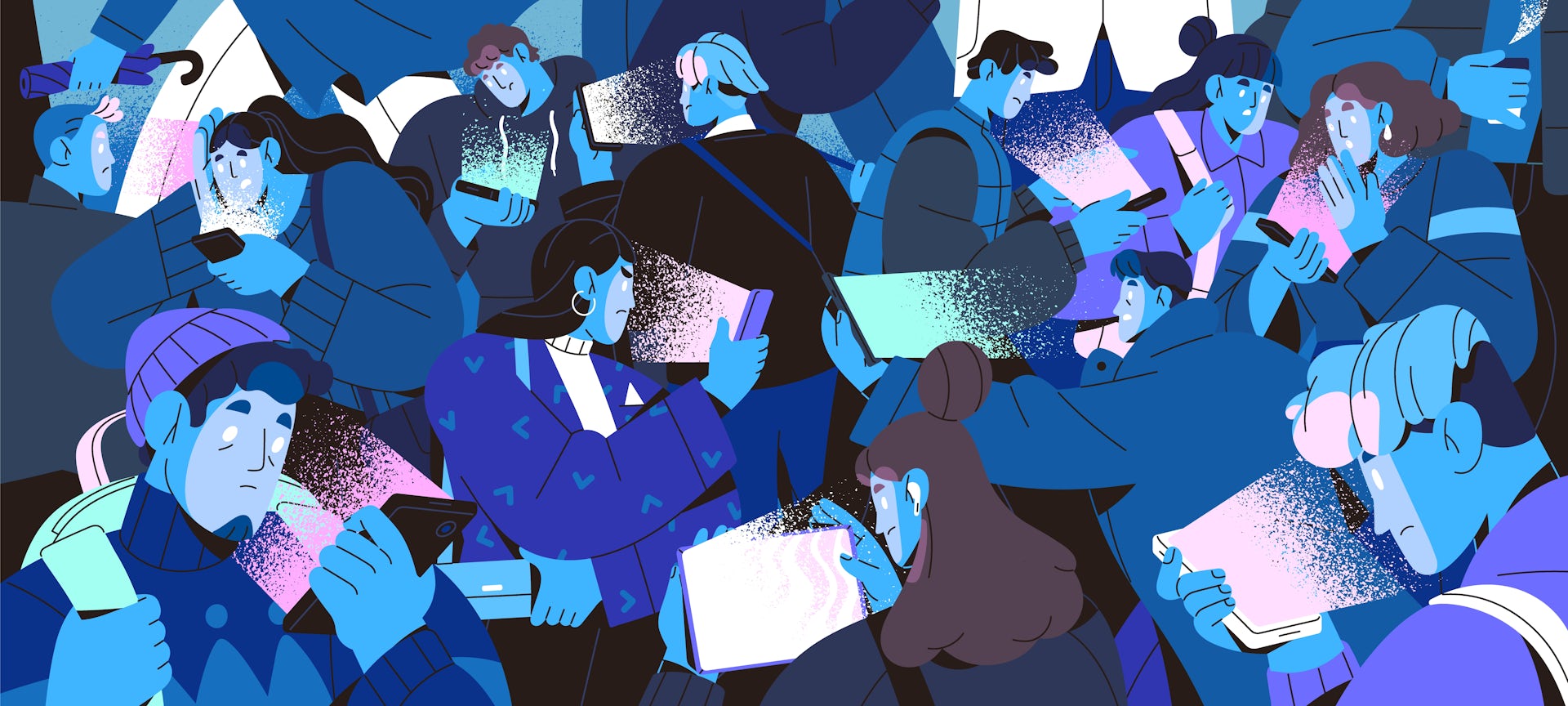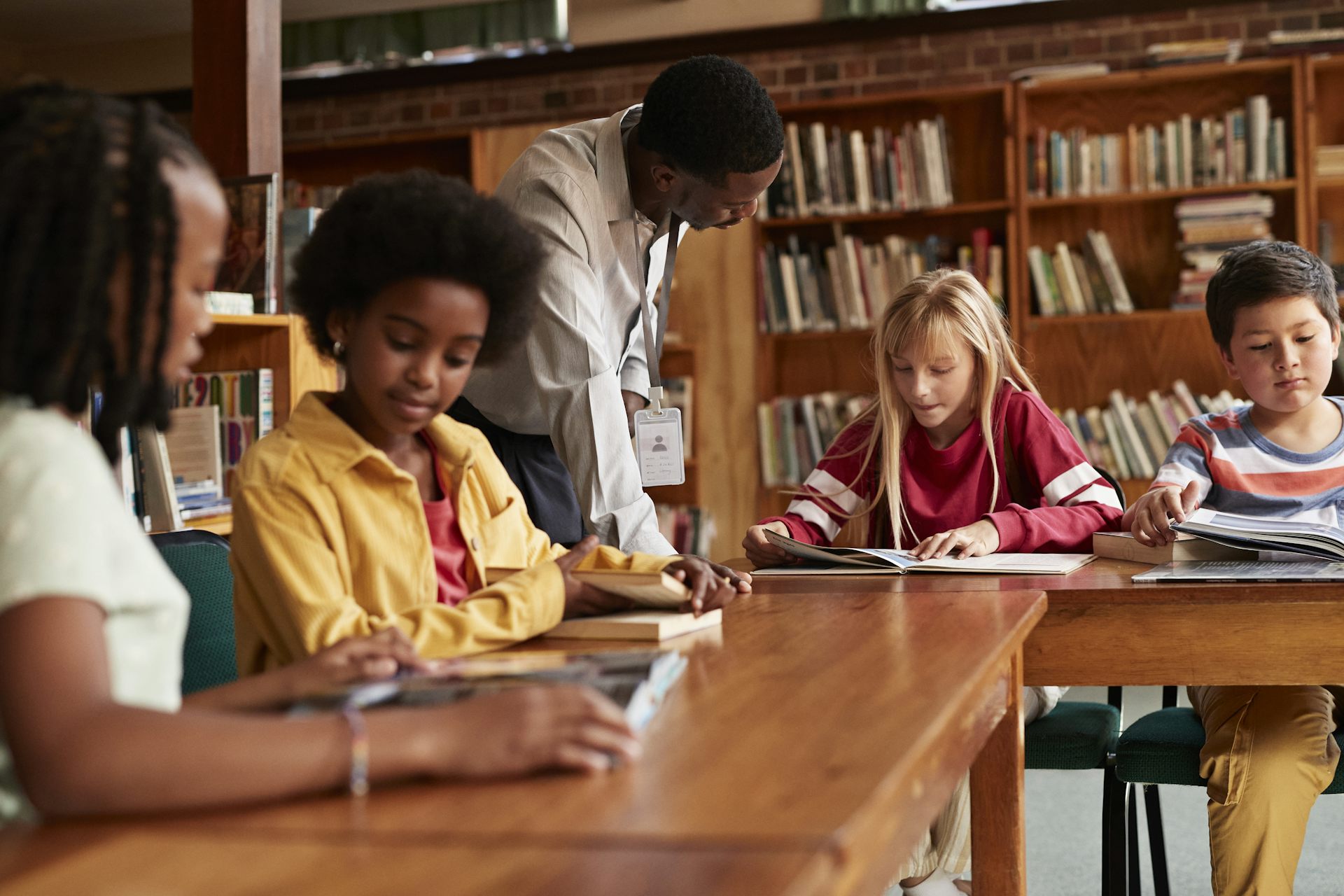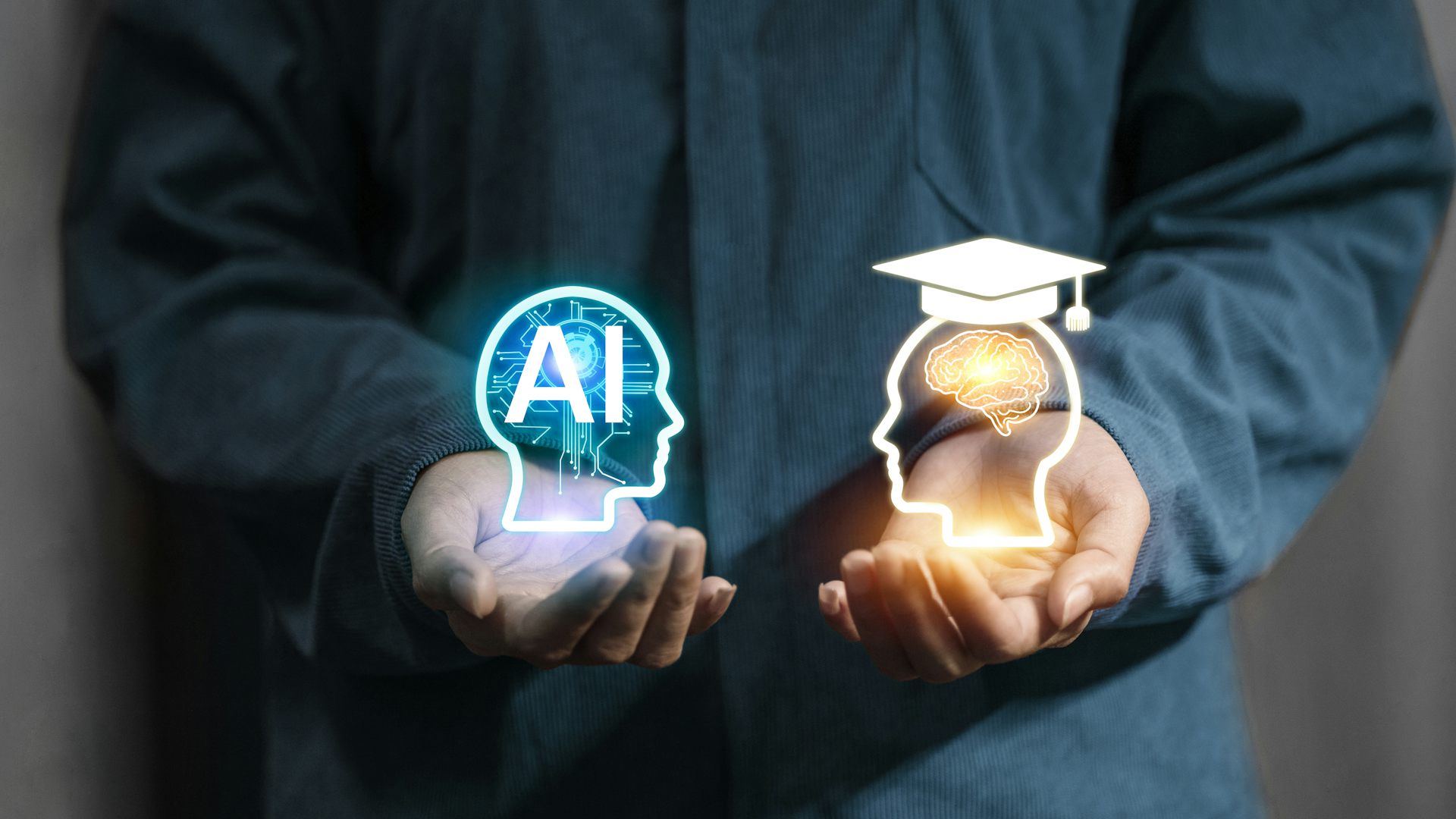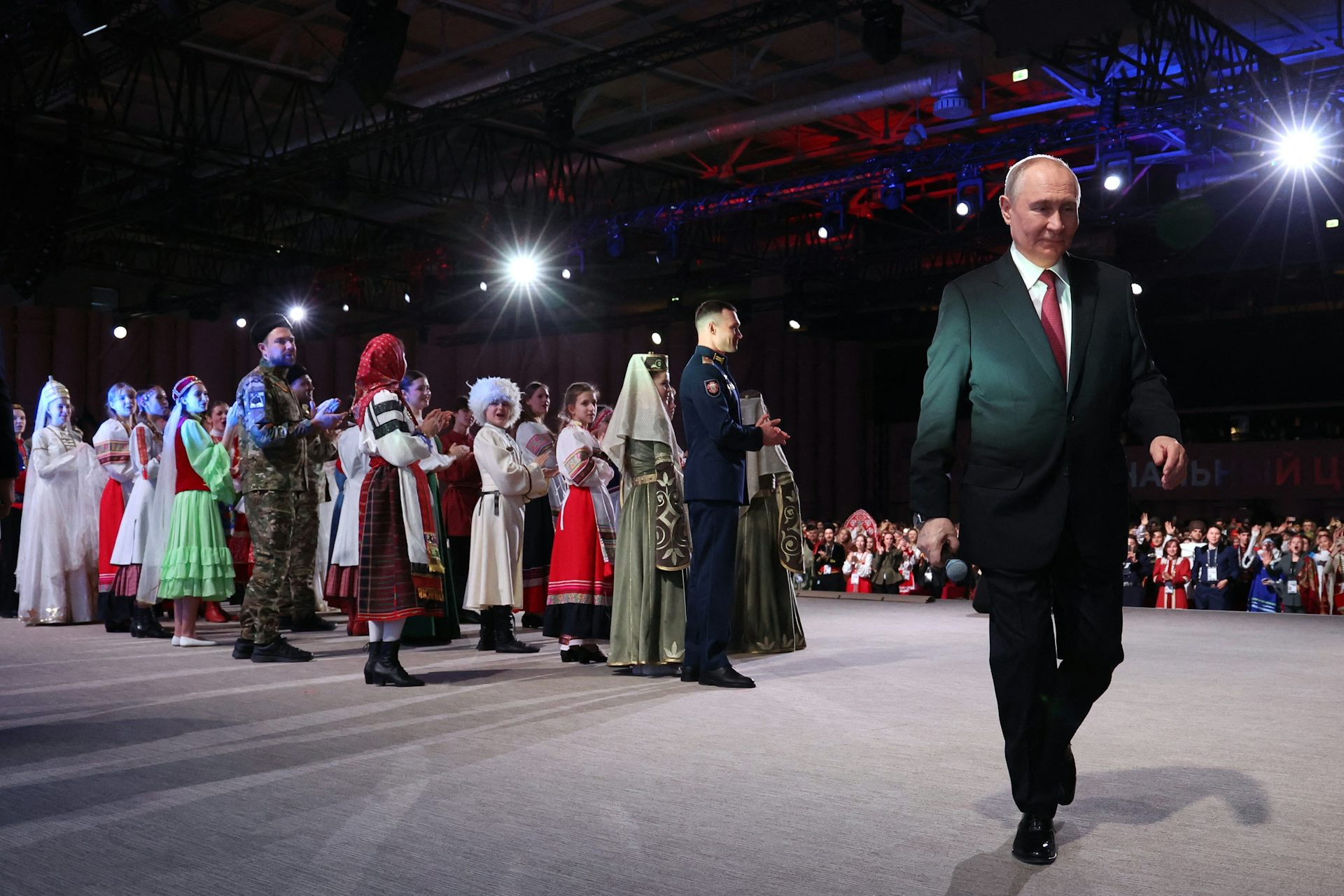5 ways to help robots work together with people
Years of research into how humans work best together yield lessons useful for designing robots to interact with people.
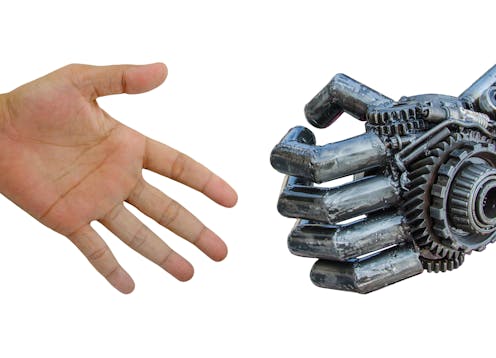
For most people today, robots and smart systems are servants that work in the background, vacuuming carpets or turning lights on and off. Or they’re machines that have taken over repetitive human jobs from assembly-line workers and bank tellers. But the technologies are getting good enough that machines will be able work alongside people as teammates – much as human-dog teams handle tasks like hunting and bomb detection.
There are already some early examples of robots and people teaming up. For example, soldiers use drones for surveillance and ground robots for bomb disposal as they carry out military missions. But the U.S. Army envisions increased teaming of soldiers, robots and autonomous systems in the next decade. Beyond the military, these human-robot teams will soon start working in fields as diverse as health care, agriculture, transportation, manufacturing and space exploration.
Researchers and companies are exploring lots of avenues for improving how robots and artificial intelligence systems work – and technical advances are important. As an applied cognitive scientist who has conducted research on human teaming in highly technical settings, I can say human-robot systems won’t be as good as they could be if the designers don’t understand how to engineer technologies that work most effectively with real people. A few basic concepts from the deep body of scholarly research into human teamwork can help develop and manage these new relationships.
1. Different jobs
Teams are necessarily groups of people with separate, though interdependent, roles and responsibilities. A surgical team, for instance, might include a nurse, a surgeon and an anesthesiologist. Similarly, members of a human-robot team should be assembled to take on different elements of a complex task.
Robots should do things they are best at, or that people don’t want to do – like lifting heavy items, testing chemicals and crunching data. That frees up people to do what they’re best at – like adapting to changing situations and coming up with creative solutions to problems.
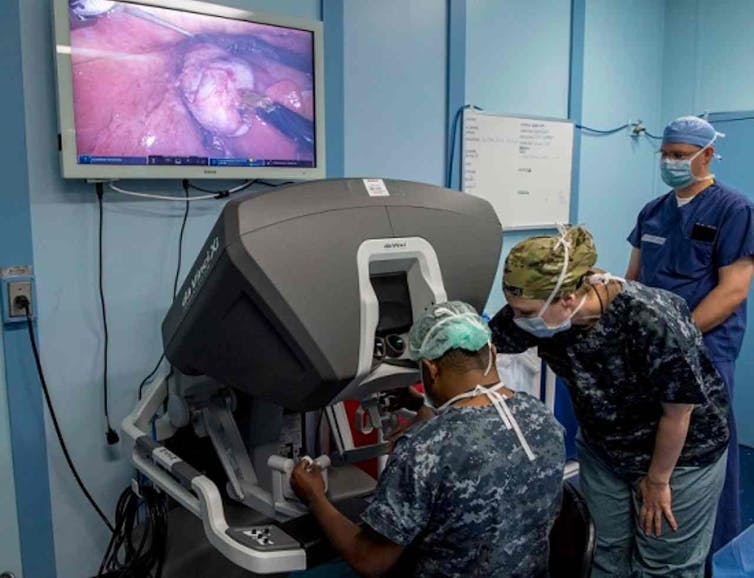
A human-robot surgical team might have a human surgeon conducting laparoscopic or minimally invasive surgery with assistance from a robot manipulator with cameras that is inserted into the patient and operated externally by the surgeon. The view can be augmented by overlaying medical imaging data on the patient’s internal anatomy on the camera view.
Planning for this sort of division of labor suggests people shouldn’t replicate themselves in machines. In fact, humanoid-shaped robots or robots and AI that mimic human social behavior may mislead their human teammates into having unrealistic expectations of what they can do.
2. Mutual backup
Effective teams’ members know that everyone has a different role – but are available to support each other when necessary. The disastrously fatal response to Hurricane Katrina in 2005 was partly the result of confusion and lack of coordination among government agencies and other groups like the Red Cross.
Teammates need to understand their own roles and those of the rest of the team, and how they fit together. They also need to be able to use this knowledge to avoid stepping on teammates’ toes, while anticipating others’ potential needs. Robots and artificial intelligence need to understand how their parts of the task relate to the parts their teammates are doing, and how they might be able to help as needed.
3. Common understanding
Effective teams share knowledge about the team goals and the current situation and this facilitates their interactions – even when direct communication is not possible.
The benefit of shared knowledge allows all sorts of collaborations and coordinations. For instance, when inflating a hot air balloon, the pilot is at one end, in the basket monitoring the burner. A crew member must be at the far end of the balloon, steadying it by holding a rope attached to its top. They can’t see or hear each other because the balloon blocks the view and the propane burner drowns out any other sound. But if they’re trained well, neither needs to communicate to know what the other is doing, and know what needs to happen next.
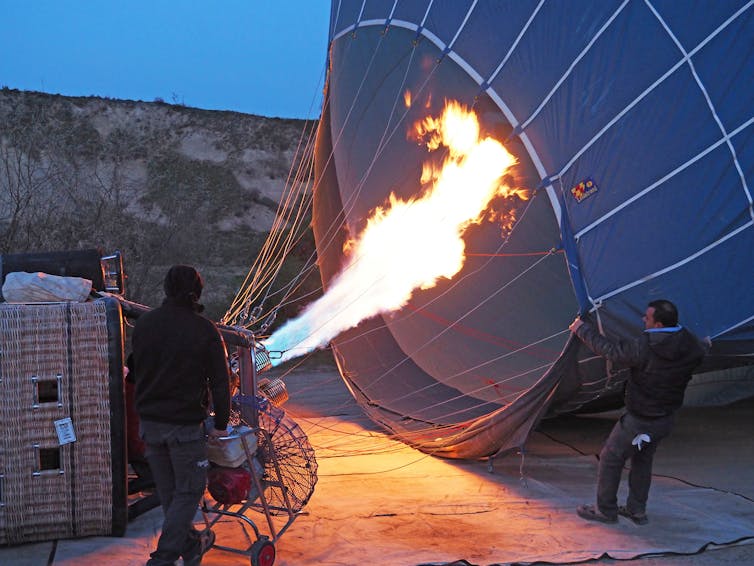
The connection team members have comes not only from information they all know, but shared knowledge developed through experience working together. Some scholars have suggested that robots can’t build experience and shared knowledge with humans, while other researchers are working on finding ways to actually do that. Machine learning will likely be a key factor in helping robots develop expectations of their coworkers’ behavior. Coupled with human intelligence, each side will learn about the other’s capabilities, limitations and idiosyncrasies.
4. Effective interaction and communication
Team members need to interact; effective teaming depends greatly on the quality of those interactions. In hospital teams for emergency resuscitation of patients, team interaction and communication are crucial. Those teams are often made up of whatever medical personnel are nearest to the patient, and members need to know right away what happened before the patient’s heart stopped – a life is at stake.
Yet even between people, communication isn’t always seamless. Between people and robots there are even more challenges – like making sure they share understandings of how words are used or what appropriate responses are to questions. Artificial intelligence researchers are making great strides in advancing computers’ ability to understand, and even produce, natural language – as many people experience with their smart assistant devices like Amazon’s Alexa and Google Home, and mobile and car-based GPS directions systems.
It’s not even clear if typical human communication is the best model for human-robot teams. Human-dog teams do fine without the use of natural language. Navy SEALs can work together at highly effective levels without uttering a word. Bees communicate location of resources with a dance. Communication does not have to involve words; it could include sound signals and visual cues. If a robot was tending the patient when their heart stopped, it could indicate what happened on a monitor that all resuscitation team members could see.
5. Mutual trust
Interpersonal trust is important in human teams. If trust breaks down among a team of firefighters, they’ll be less effective and may cost lives – each other’s or members of the public they’re trying to help. The best robot teammates will be trustworthy and reliable – and any breaches in reliability need to be explained.
But even with an explanation, technology that is chronically unreliable is likely to be rejected by human teammates. That’s even more vital in safety-critical technology, like autonomous vehicles.
Robots are not automatically capable of teaming with humans. They need to be assigned effective roles on the team, understand other team roles, train with human team members to develop common understanding, develop an effective way to communicate with humans, and be reliable and trustworthy. Most importantly, humans should not be asked to adapt to their nonhuman teammates. Rather, developers should design and create technology to serve as a good team player alongside people.
Nancy Cooke receives funding from the Office of Naval Research Science of Autonomy program, the Air Force Office of Scientific Research Trust and Influence program and the Army Research Laboratory.
Read These Next
Algorithms that customize marketing to your phone could also influence your views on warfare
AI systems are getting good at optimizing persuasion in commerce. They are also quietly becoming tools…
How transparent policies can protect Florida school libraries amid efforts to ban books
Well-designed school library policies make space for community feedback while preserving intellectual…
Colleges face a choice: Try to shape AI’s impact on learning, or be redefined by it
Colleges and universities are taking on different approaches to how their students are using AI –…


